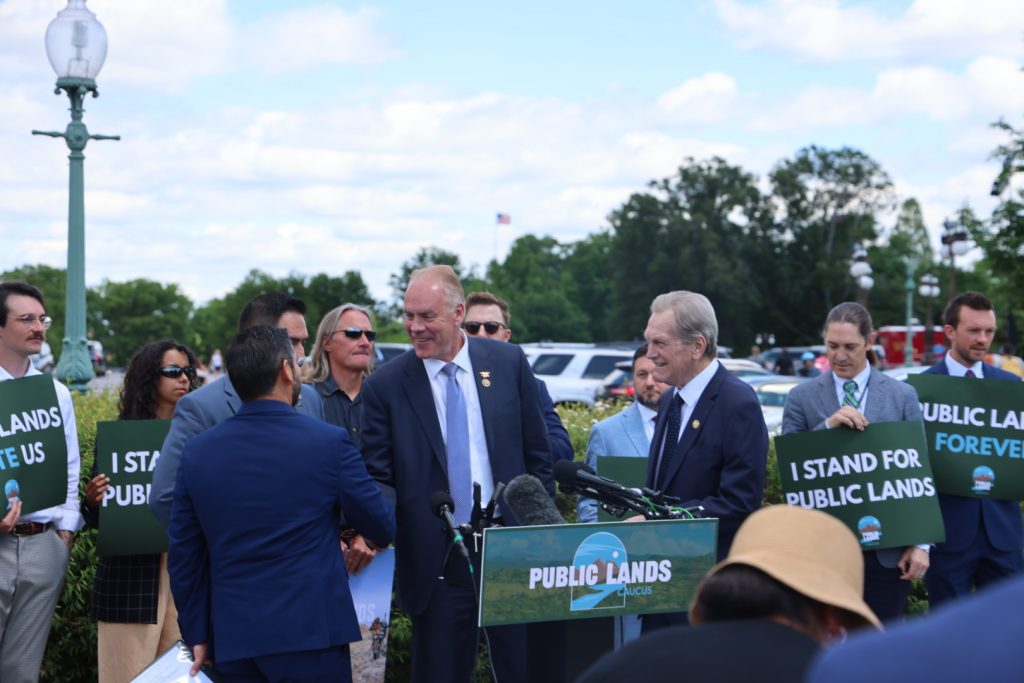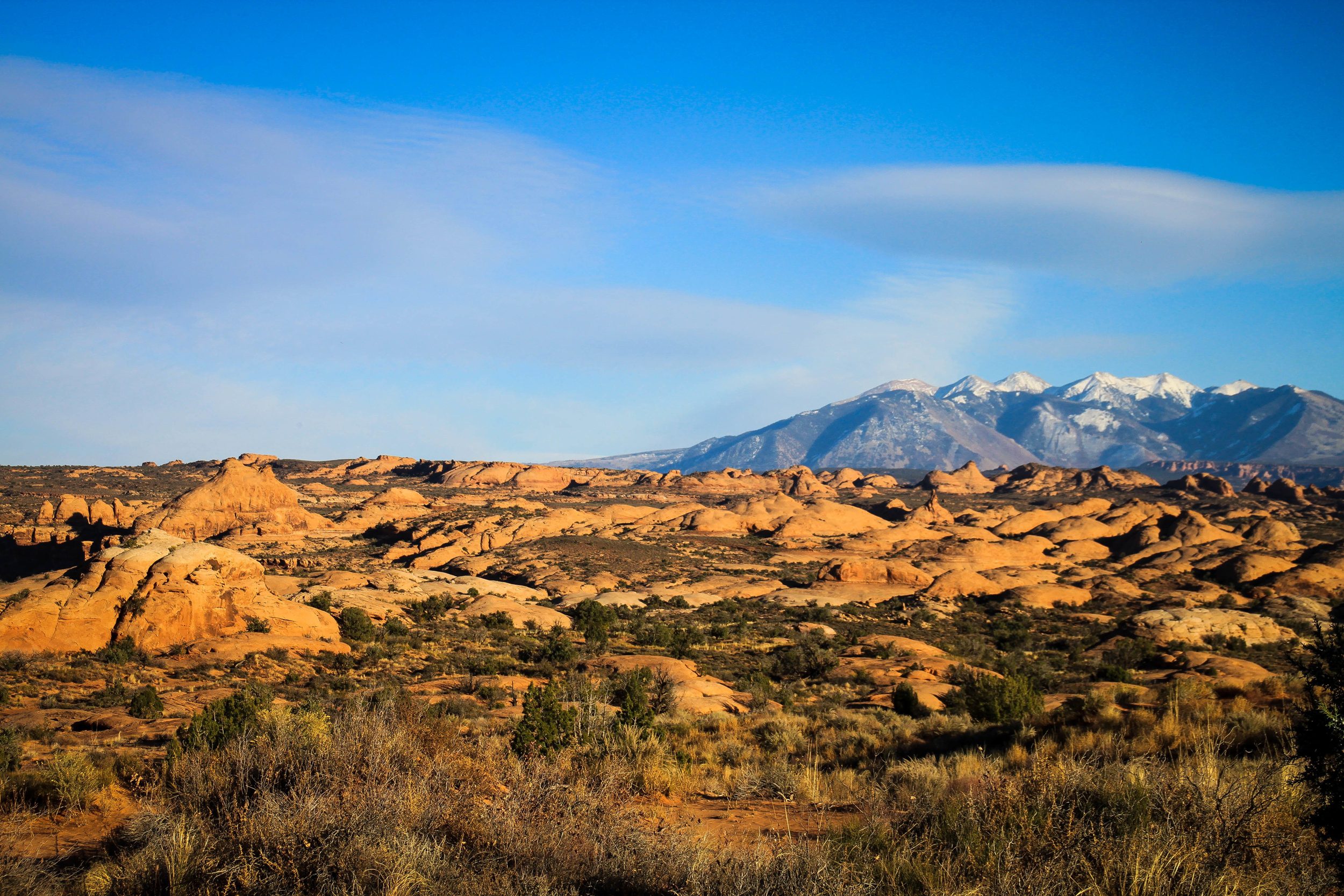- House Republicans advance amendment to sell federal land in Nevada and Utah.
- Critics warn the move threatens public access and environmental safeguards.
- Supporters argue it will ease housing shortages and benefit local economies.
- Rep. Zinke forms new bipartisan caucus to protect access to public lands.
Friday, May 9, 2025 — In a late-night committee session Wednesday, House Republicans pushed through an amendment that would authorize the sale of tens of thousands of acres of federally managed public lands in Nevada and Utah. The measure, introduced by Rep. Mark Amodei of Nevada, was folded into a broader reconciliation bill and approved by the House Natural Resources Committee. It now heads to the full House for a vote.
The measure, introduced by Rep. Mark Amodei of Nevada, was folded into a broader reconciliation bill and approved by the House Natural Resources Committee. It now heads to the full House for a vote.
The amendment would direct the Secretary of the Interior to identify and offer for sale specified parcels in Lyon, Clark, Washoe, and Pershing Counties in Nevada. According to the amendment text , sales must occur within two years of enactment and adhere to zoning rules and master planning guidelines set by local governments.
, sales must occur within two years of enactment and adhere to zoning rules and master planning guidelines set by local governments.
The land sales are framed as a way to boost affordable housing, particularly in fast-growing areas such as St. George, Utah, and near Las Vegas and Reno, Nevada. Under the proposal, parcels deemed suitable for low-cost housing could be sold below market value, and buyers would be exempt from federal notice of realty action requirements as long as they provide a 14-day public notice.
Rep. Celeste Maloy (R-Utah), who represents parts of southwestern Utah, said her district is constrained by high percentages of federal ownership. “Many of the difficulties we face at a local level are of course related to the fact that the county is surrounded by federal land,” she told the committee . She noted that the roughly 10,000 acres targeted in her district represent less than one-third of a percent of all federally owned land in Utah.
. She noted that the roughly 10,000 acres targeted in her district represent less than one-third of a percent of all federally owned land in Utah.
While supporters say the amendment represents only a small fraction of public land and will bring relief to housing markets, critics argue it sets a dangerous precedent.
“This measure is an outrageous assault on our public lands and waters,” said Kabir Green, director of federal affairs for nature at the Natural Resources Defense Council . “It was jammed through in the dead of night to bankroll tax cuts for billionaires and serve the oil, coal, and timber industries.”
. “It was jammed through in the dead of night to bankroll tax cuts for billionaires and serve the oil, coal, and timber industries.”
The National Wildlife Federation echoed those concerns . “Selling off our public lands to balance the federal budget is a lose-lose proposition for wildlife, clean air and water, outdoor recreation, rural communities, and taxpayers,” said David Willms, associate vice president of public lands at the organization. “Once these lands are sold, the public can never use them again.”
. “Selling off our public lands to balance the federal budget is a lose-lose proposition for wildlife, clean air and water, outdoor recreation, rural communities, and taxpayers,” said David Willms, associate vice president of public lands at the organization. “Once these lands are sold, the public can never use them again.”
The amendment outlines various procedures for identifying and appraising eligible lands and requires that sales be conducted through competitive bidding—except in cases where affordable housing needs are prioritized. In such cases, parcels can be sold below market value if requested by local or state governments. Proceeds from all sales would be deposited into the U.S. Treasury.
The proposal also includes special provisions for land exchanges in Pershing County, Nevada, allowing for the consolidation of fragmented land ownership and potential resolution of “checkerboard” land patterns that have historically complicated federal and private land management.

Implications for Water Rights and Resource Management.
The following issues will need to be considered if the amendment is passed:
- No automatic transfer of water rights. Under the prior appropriation doctrine used in Nevada and Utah, land sales do not automatically confer water rights. Buyers must secure rights separately, which can lead to disputes if water is already fully allocated.
- Higher water demand from new housing. Affordable housing developments in places like Las Vegas, Reno, and St. George will increase municipal demand on already-strained systems such as the Colorado River and local aquifers.
- Fragmentation of watershed oversight. Public agencies like the Bureau of Land Management often manage land using watershed-scale planning. Privatizing land can interfere with stormwater control, erosion mitigation, and riparian restoration.
- Loss of federal environmental review. Federal sales remove properties from laws like the Clean Water Act and NEPA, potentially weakening protections for water quality and aquatic ecosystems.
- Tribal water rights may be affected. In regions with unresolved Indian Water Rights Settlements, nearby privatization could reduce surface flow or groundwater levels relied upon by tribes.
- Lack of integrated planning. The amendment does not include water planning provisions, raising concerns that development will outpace the capacity of local water infrastructure and regulatory systems.
Sources: Federal Land Policy and Management Act (43 U.S.C. 1701 ), Southern Nevada Public Land Management Act of 1998
), Southern Nevada Public Land Management Act of 1998 , NRDC
, NRDC , NWF
, NWF , [BLM documents
, [BLM documents ], [Rep. Amodei Amendment PDF]
], [Rep. Amodei Amendment PDF] , NPR
, NPR .
.

Zinke’s Bipartisan Caucus Counters Privatization Push.
In contrast to the committee’s action, Rep. Ryan Zinke (R-MT), a former Secretary of the Interior under President Trump, has co-founded the bipartisan Public Lands Caucus with Rep. Gabe Vasquez (D-NM). Announced the same day the land sale amendment advanced, the caucus emphasizes conservation and access over privatization.
“Public lands aren’t red or blue issues, it’s red, white and blue,” Zinke said . “The bipartisan Public Lands Caucus brings together lawmakers who don’t agree on much, but we agree on and are ready to work together to promote policies that advance conservation and public access.”
. “The bipartisan Public Lands Caucus brings together lawmakers who don’t agree on much, but we agree on and are ready to work together to promote policies that advance conservation and public access.”
Support for the caucus came from a wide spectrum of organizations, including Trout Unlimited, the Theodore Roosevelt Conservation Partnership, the American Horse Council, Ducks Unlimited, and the Society of Outdoor Recreation Professionals. These groups praised the caucus for its commitment to keeping public lands public and ensuring continued access for hunting, fishing, recreation, and cultural preservation.
The full House is expected to consider the amendment in the coming weeks. Meanwhile, environmental and recreation groups are rallying public opposition, arguing that decisions affecting millions of acres should not be made in late-night votes with minimal public scrutiny.

